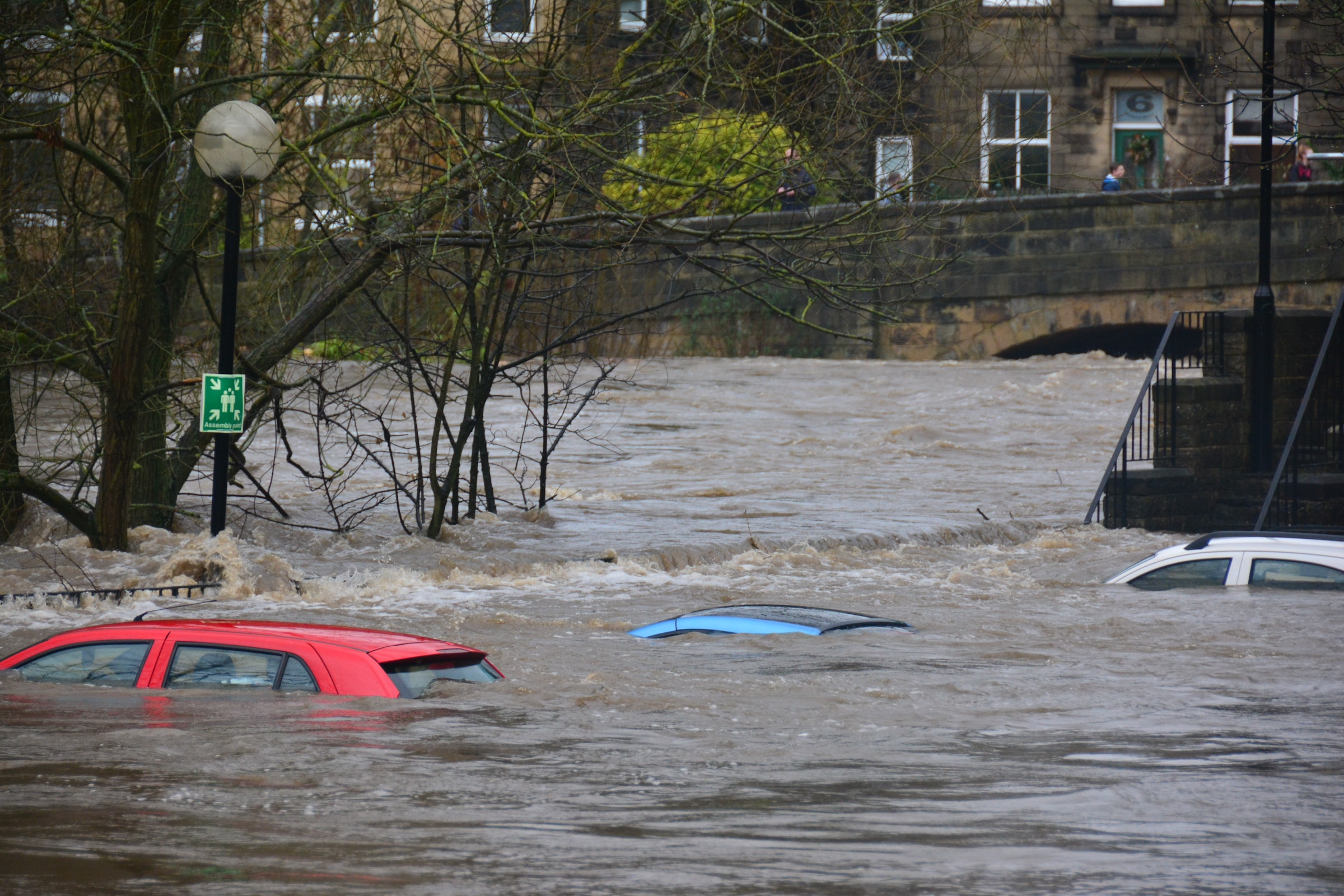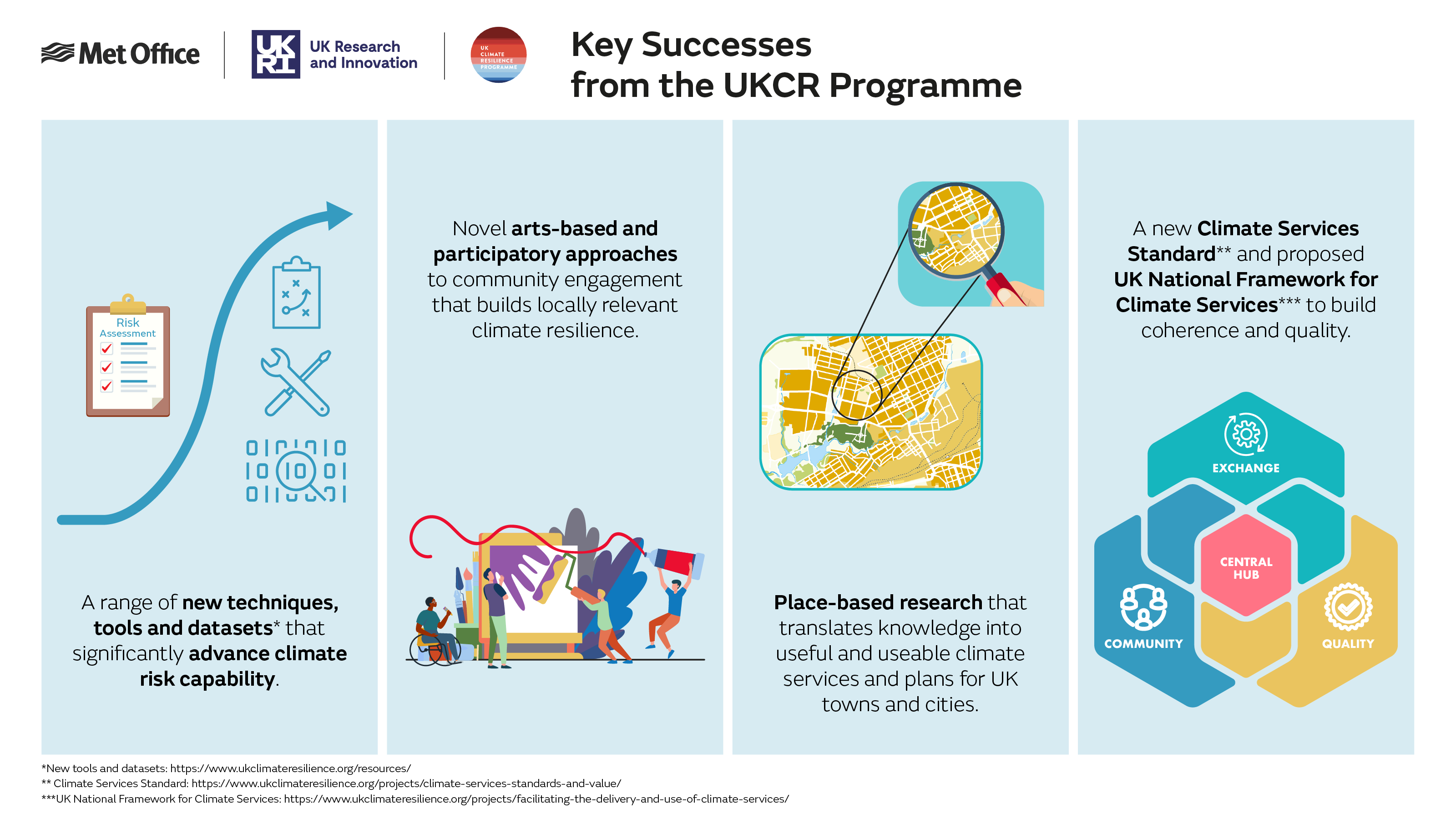New book explores UK climate risk and resilience
A new book has been published bringing together key research from the UK Climate Resilience programme, which was co-led by the Met Office and involved researchers from across the UK.
 Cars submerged in flood water in Bingley, Bradford on Boxing Day 2015
Cars submerged in flood water in Bingley, Bradford on Boxing Day 2015
'Quantifying Climate Risk and Building Resilience in the UK'
‘Quantifying Climate Risk and Building Resilience in the UK’ summarises the £19m of research to improve the characterisation and quantification of climate risks, enhance understanding of the management of climate risks, and develop and delivery climate services.
The book addresses the challenges of undertaking resilience research, including how to make the term ‘climate resilience’ usable and useful, co-producing research between academics, policy makers and practitioners, and engaging and communicating outside of academia.
It has been produced primarily for adaptation and climate change policy makers and practitioners, tasked with addressing current and future climate risks and building the UK’s climate resilience.
Various Met Office colleagues contributed to the 13 chapters of the publication that was co-edited by Professor Jason Lowe OBE, Head of Climate Services at the Met Office.
What is the book about?
The book explores approaches to undertaking resilience research, managing climate risks in place, climate services and other decision-making tools, and understanding and characterising hazard and risk information. It also includes reflections on interpretations of the term ‘resilience’, how to deliver impact from research, and priority areas for the resilience research community in the future.
Each of the chapters is 3,000 words, includes a bullet pointed summary and is written in accessible language. Each chapter has a summary of what was achieved by the programme, reflections on the use of the research developed, and suggestions of how the area should move forward.
What does the science say?
Further impacts to society from climate change are unavoidable, and high warming levels of over 4°C are possible by the end of this century. Met Office scientists say global temperatures may temporarily reach 1.5°C above pre-industrial temperature over 2024.
2023 was the second warmest year on record in the UK, and human-induced climate change made its average temperature significantly more likely. It was another wet year for the UK with 11% more rainfall than average.
Urgent action is needed to reduce greenhouse gas emissions, build resilience and accelerate adaptation to climate variability and change. An extensive range of actions are needed to manage climate risks, reduce damage without exacerbating existing inequalities, and realise emerging opportunities.
Further information
The UK Climate Resilience Programme was co-led by UKRI and championed by the University of Leeds, ran from 2019 to 2023 and funded more than 50 research projects involving researchers across the UK.
The book is open access, providing free and unlimited access to the contents. It can also be purchased as a hard copy for £24.99.
‘Quantifying Climate Risk and Building Resilience in the UK’ was published, both as an eBook and Hardcover version, in December 2023.
 An infographic showing key successes from the UK Climate Resilience programme
An infographic showing key successes from the UK Climate Resilience programme


